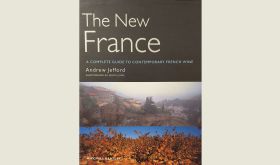Wine collections have a habit of getting out of hand, as I outlined last week in The collecting instinct. Those who wanted to sell surplus wine in the old days had little choice. It pretty much had to be via an auction run by either Sotheby’s or Christie’s, first in London and then internationally. Bonhams and Phillips joined them in the UK by opening wine departments. There are now auctioneers in the US (see below) and several mainland European auction houses which specialise in selling wine. (See the Auctions tab in various countries' listing in our Where to buy section.)
But today there are multiple other ways of selling wine and the auction houses have been suffering as a result – not least because Christie’s and Sotheby’s charge buyers a commission of more than 20%, in addition to a vendors’ commission of about 10%. In the UK, which has probably regained its position as the world’s fine-wine trading capital now that sales in Hong Kong are no longer boosted by booming demand for wine in mainland China, the most popular way for private individuals to sell part or all of their wine collections now is through the outfit they bought it from.
The first London wine merchant to offer to sell wine on behalf of its customers, back in the early 1980s, taking the standard 10% commission, was La Réserve, since morphed into Jeroboams. If customers of the big traditional merchants wanted to sell some wine then, the likes of Berry Bros & Rudd, Corney & Barrow and Justerini & Brooks would sell it through one of the auction houses and take a 3% commission on the sale.
But as the number of people investing in fine wine grew, the traditional merchants realised they could make money providing a marketplace for their clients. In 1992 Corney & Barrow was the first to launch a fully fledged broking service, offering to sell their customers’ reserves to other customers, wherever in the world they might be. This has been so successful that it has won two Queen’s Awards for Enterprise.
They have since been followed into this lucrative business (a standard 10% commission is generally charged) by their peers. Justerinis claim to have 1,650 unique customers a month trading in their Just Broking division, while Berrys lay claim to 1,100 a month on their trading platform BBX, now fully automated and available as an app. Vendors are allowed to set their own selling price, which has the effect that the same wine may be offered at wildly differing prices.
Someone who aims to wipe the floor with these services is Gary Boom of BI Wines. His in-house software developers have been building their BI LiveTrade platform, which, he claims, is the only one that offers a firm cash-buying price as well as a selling price for what he considers the 550 most ‘desirable’ wines in the world. The platform also provides historic pricing data, critics’ reviews, scores and so on. Boom is so convinced that this is the ‘Uber of fine-wine trading’ that he has invested £5 million in building the platform. Vendors of these popularly traded wines receive all of the advertised buying price, pay no commission and are promised 'instant trading and execution and fast payment'. Boom claims that the number of wines featured on the platform will be increased and offers standard broking at 10% commission for those not included in his magical 550.
BI’s great rivals as fine-wine traders, Farr Vintners, also depend heavily on trading their customers’ reserves. The £400 million worth of customers’ wine stored in Farr’s bonded warehouse provides about 30% of all wine sold by Farr, again on 10% commission.
In May 2020 specialist wine storage providers Octavian (see our free Where to store directory) introduced an online trading platform for their private clients.
When friends of mine in the UK ask me about selling their own wine collections, I generally recommend small wine merchants who specialise in personally valuing and collecting wines from private homes. Several friends have been happy with the services of David Boobyer of Reid Wines (reidwines@aol.com) near Bristol. He took over the business from the late Bill Baker, one of the country’s most enthusiastic wine merchants and bons viveurs, but has no online presence.
I also recommend Four Walls Wines near Chichester, where Barry Phillips has also been in business long enough to know where the good bottles are buried. As Stephen Browett of Farr Vintners observed to me about locating top-quality stock, ‘any merchant who knew rich people buying fine wine 30 to 40 years ago is in a good position’.
But for those who would prefer to take their chances in the saleroom, many local auctioneers are prepared to sell odd bottles of the sort of wine not grand enough for the big auction houses (who prefer to sell unopened original wooden cases, ‘owc’ in sale catalogues). Christie’s used to hold lively sales of these lesser wines in their South Kensington saleroom but nowadays send such bottles to Tate Ward, who hold auctions in the old Truman brewery in East London.
These sales may also be of interest to casual wine buyers (see our tips on buying wine at auction). Straker Chadwick of Abergavenny is active in this arena. Some lots go for as little as £20 (a magnum of 2006 Cava recently). Retired lawyer, wine collector and Purple Pager Andrew Matthews is based in Norwich and chose them a few years ago to sell 60 cases of wine that he, or rather his wife, decided were surplus to requirements.
‘I sent them the list with details of provenance plus photo of my cellar and explained about temperature variation. They were efficient. I had to pay for the transport, which from recollection was about £40 +VAT. They took all I had and listed it as simply 'a private cellar in East Anglia'. They stripped off all labels with my name on and sent me a list with estimates for approval. The auction has not only bidders in the room but phone-line bidding as well. I got paid promptly. Mrs Matthews was delighted. She got a new car and the children got carpets for their rooms plus a lovely family holiday in Denmark.’ Brightwells of Leominster have also been recommended as provincial auctioneers who hold wine sales.
BidforWine.co.uk will sell your wine for you, at varying commission levels below 10%. And of course there is eBay, which features a surprising array of wines – and empty bottles, presumably of most interest to counterfeiters.
When I asked members of JancisRobinson.com on our Members' forum for their experiences of selling wine, David Banford of Stellenbosch proposed, ‘trading wines with restaurants anxious to add mature wines to their list in exchange for restaurant credits to be taken at some future date once wines have been sold to customers at keen pricing’.
Let us all look forward to a time when that will once more be possible.
What they do in America
Auctioneers such as Hart Davis Hart, Christie’s, Sotheby’s and Zachys all specialise in wine with the most desirable pedigrees but, one hopes, are pretty demanding in their enquiries about exactly where the wine has come from and how it was stored.
For smaller quantities or rather less grand names, both Winebid.com and Vinfolio.com are worth approaching.
In New York several restaurants have made their wine reputations thanks to private wine collections, either consigned or sold outright. Similarly some merchants such as Italian Wine Merchants or Chambers Street Wines have bought whole cellars from individual collectors.
There are also specialist cellar-management consultants such as Chai Consulting and Grand Cru Wine Consulting. Search online for ‘wine cellar management’.













